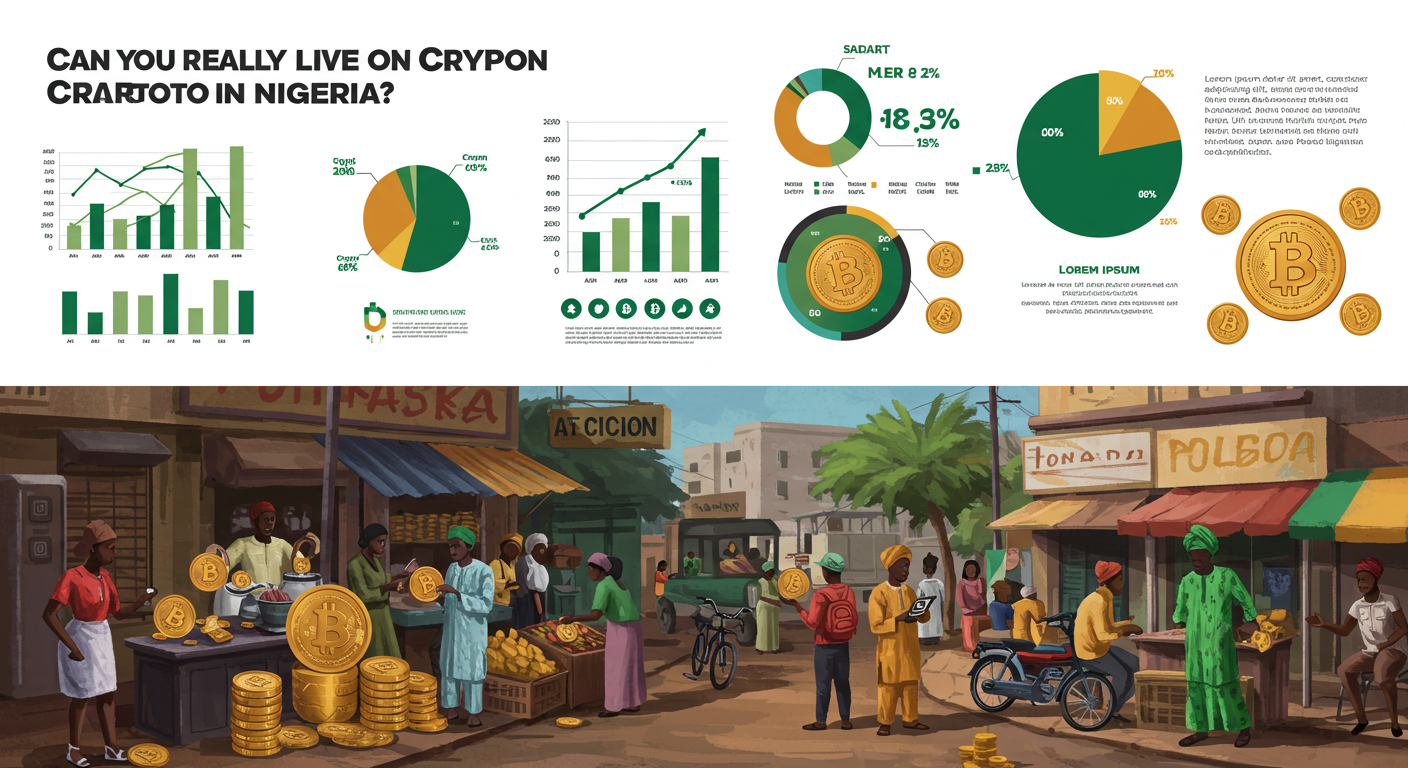
Can You Really Live on Crypto in Nigeria? A Look at Daily Use
- Posted on: June 11, 2025
Cryptocurrency has long been seen as a futuristic form of money — great for investment, but not necessarily practical for everyday life. However, with Nigeria ranking among the top crypto adopters globally, more people are asking: Can you really live on crypto in Nigeria?
The short answer? Yes — but with some limitations. From paying bills to buying groceries, an increasing number of Nigerians are finding ways to integrate crypto into their daily routines.
Let’s take a closer look at how this works in practice, and what challenges and opportunities lie ahead.
Why Crypto Adoption Is Rising in Nigeria
Several key factors have contributed to Nigeria becoming one of the most crypto-savvy nations in Africa:
- High inflation and Naira devaluation make stablecoins like USDT more attractive than local currency
- Limited access to international payments leads people to seek borderless financial tools
- Youth-driven digital culture and tech awareness are pushing innovation
- Remittance fees and delays are avoided with faster, cheaper crypto alternatives
These reasons have turned crypto from a niche investment into a daily tool for survival and stability.
1. Paying Bills and Expenses with Crypto
While you can’t walk into every supermarket and pay with Bitcoin (yet), many Nigerians are using crypto indirectly to handle everyday expenses:
- Data and Airtime: Platforms like EootleX allow users to buy airtime and data directly with crypto.
- Utility Bills: Some fintechs accept crypto as payment for electricity and internet bills through third-party vendors.
- Food & Groceries: Gift card platforms let users convert crypto into grocery or shopping vouchers.
- Rent Payments: Forward-thinking landlords are now open to USDT or BTC, especially in Lagos and Abuja.
With the right tools, living on crypto is not only possible — it’s practical.
2. Shopping and Services with Crypto
A growing number of online stores and freelancers in Nigeria accept crypto for:
- Freelance gigs and side hustles
- Buying electronics or fashion items
- Accessing digital products like courses and eBooks
Crypto also makes it easier for small business owners to:
- Avoid unstable Naira exchange rates
- Receive payments from international customers
- Save and store value in stablecoins like USDT (TRC-20)
3. Cash Withdrawals: From Crypto to Naira
While not every vendor accepts crypto directly, most users convert to Naira when needed — quickly and securely. With platforms like EootleX, you can:
- Sell USDT, BTC, or ETH
- Get instant transfer to your Nigerian bank account
- Withdraw cash from any ATM or POS terminal
This allows users to spend crypto like regular money, making it viable for daily living.
4. Transportation and Fuel
Though crypto isn't widely accepted by transport companies, creative Nigerians are working around this:
- Converting small amounts of USDT into cash for daily transport
- Using gift cards to pay for Uber or Bolt rides
- Paying fuel attendants or motorbike riders with cash withdrawn from crypto
It’s not 100% seamless yet, but crypto-powered movement is possible with a little planning.
5. Education and Health
Education is one area where crypto is making strides:
- Students are paying school fees abroad using USDT
- Online courses and digital learning platforms accept BTC or stablecoins
- Some telehealth providers are exploring crypto payments for consultations
It’s not widespread yet — but it’s growing.
Challenges of Living Fully on Crypto
While promising, living entirely on crypto in Nigeria still has its challenges:
- Volatility: Bitcoin’s price fluctuations can affect purchasing power
- Acceptance: Many offline businesses still don’t understand or trust crypto
- Regulation: Central Bank policies can limit how crypto interacts with the financial system
- Tech Barrier: Not everyone is comfortable using wallets, exchanges, or QR codes
Still, platforms like EootleX are helping users overcome these challenges by offering a seamless bridge between crypto and everyday Nigerian life.
So, can you really live on crypto in Nigeria?
Yes — with the right tools, platforms, and planning. Crypto is no longer just an investment strategy for the wealthy. It’s becoming a daily solution for people who want control over their money, stable alternatives to the Naira, and access to the global economy.
As more businesses, individuals, and services open up to the idea, living on crypto in Nigeria will only get easier.
